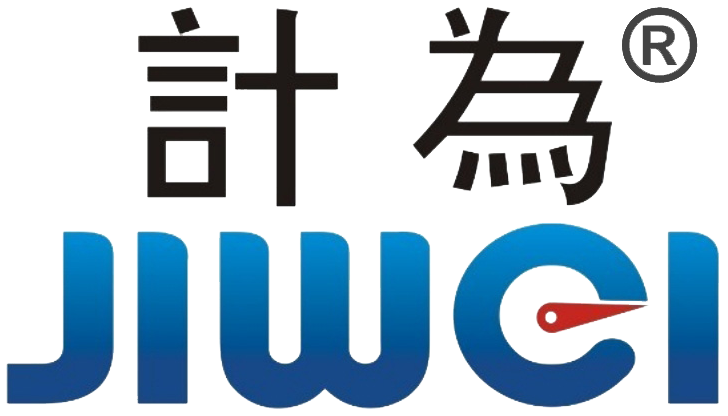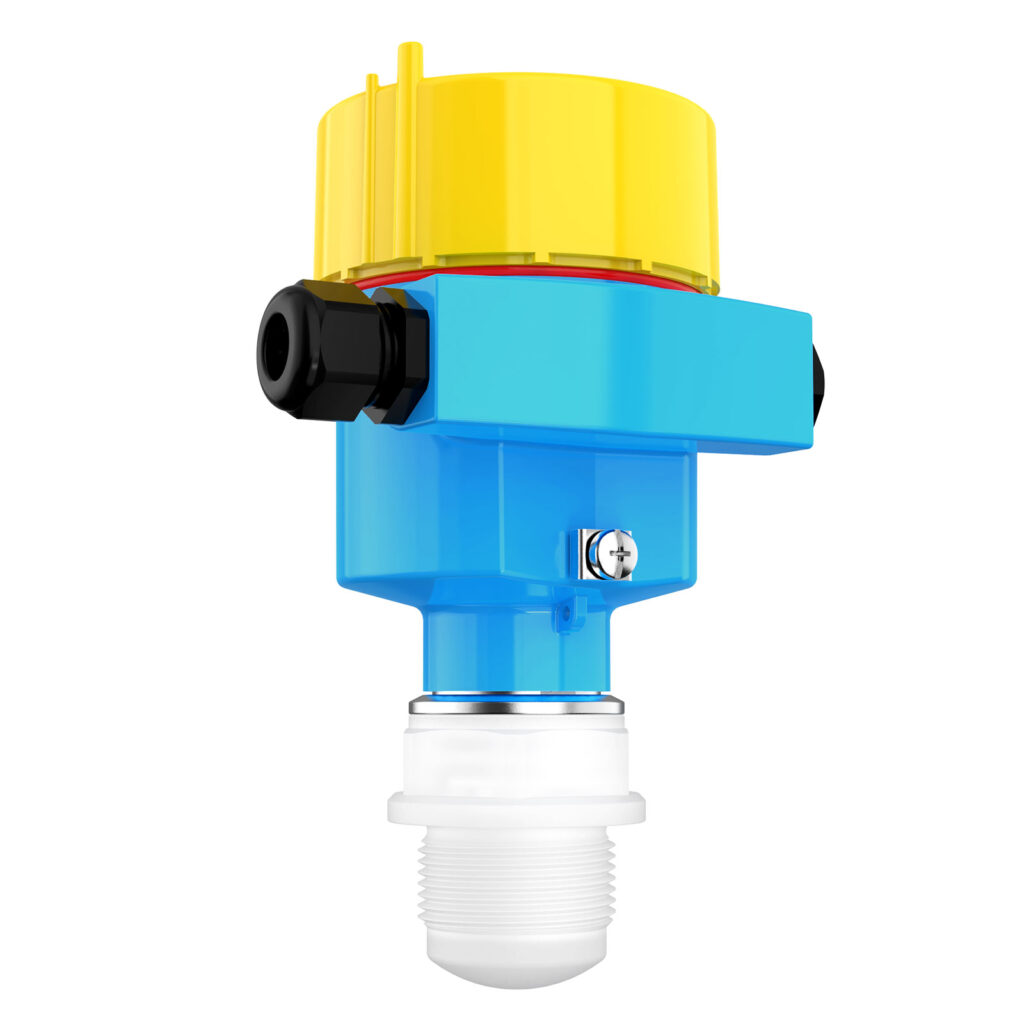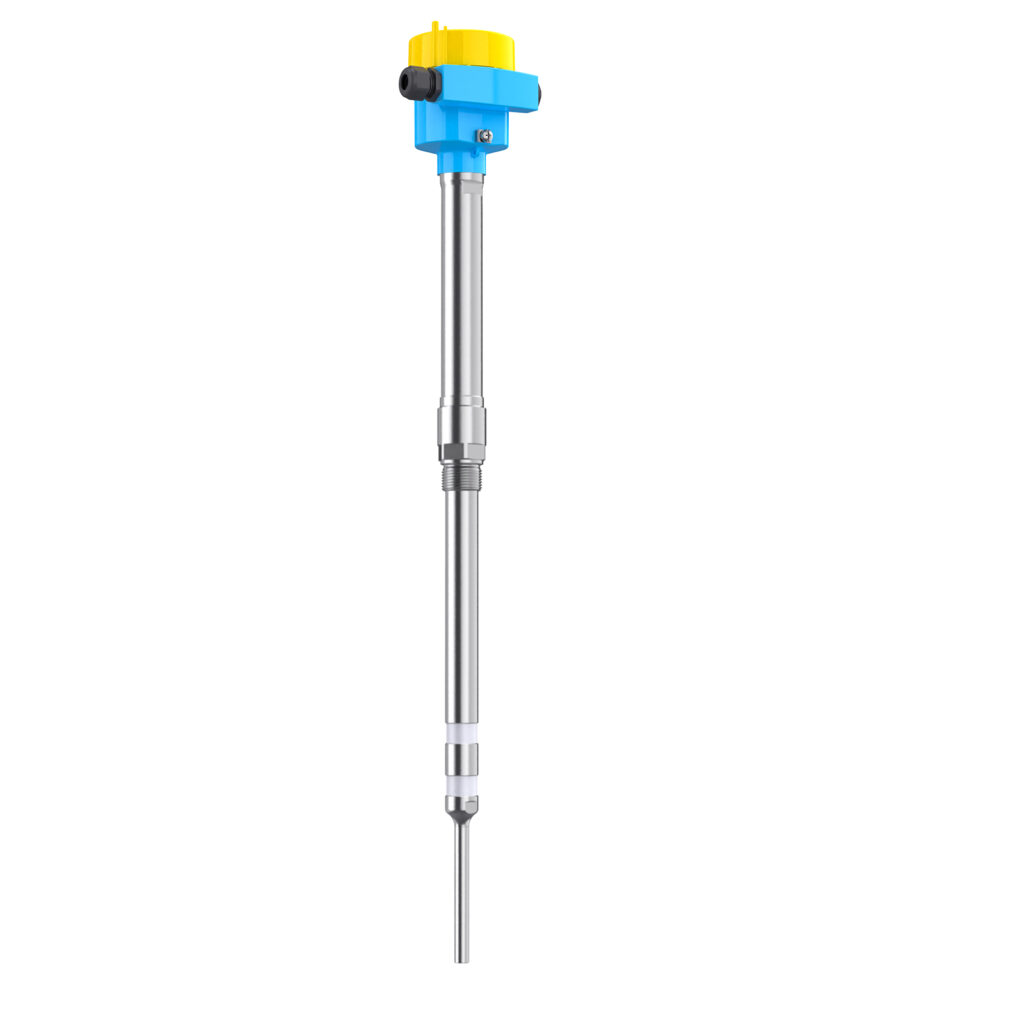Top 4 Point Level Sensors You Need to Know for Accurate Measurement in Industrial Applications
Point level sensors are essential for various industries, from manufacturing to chemical processing, ensuring accurate measurement of material levels in tanks, silos, and other containers. These sensors can detect specific points in materials, such as solids, powders, or granular substances. The proper selection of point level sensors guarantees precise measurements, enhances operational efficiency, and prevents equipment failure. In this article, we’ll explore the top four types of point level sensors, focusing on Jiwei’s products, and examine their unique advantages for industrial applications.
1. Vibrating Rod Level Switches
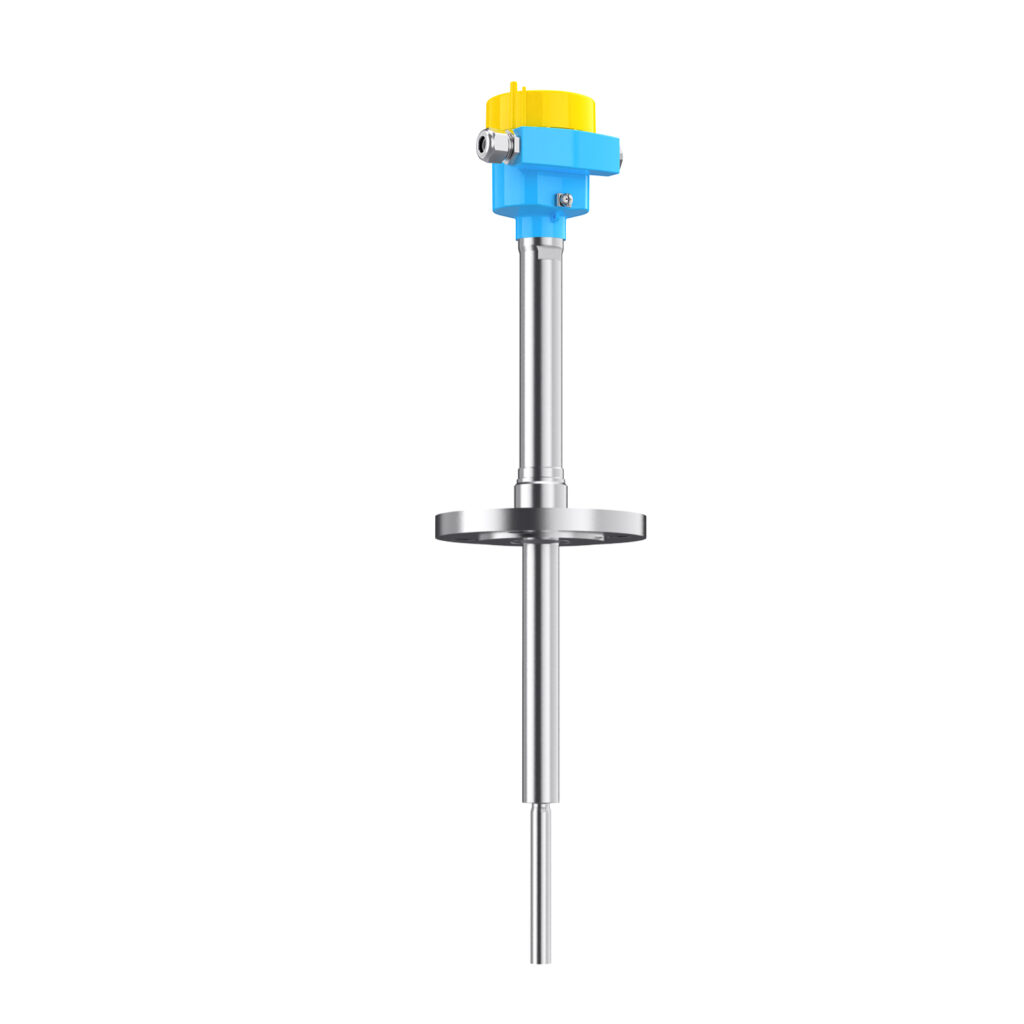
Vibrating rod level switches are some of the most reliable point level sensors available today. Jiwei’s vibrating rod technology operates by sending vibrations through the probe. When material comes into contact with the probe, it changes the vibration frequency, which is then detected by the sensor. Jiwei’s vibrating rod level switches are designed to handle a wide range of bulk solids and powders, making them ideal for applications in industries such as cement, chemicals, and food processing.
Key Advantages of Jiwei Vibrating Rod Level Switches:
- High Accuracy: Provides precise material detection in a variety of materials.
- Durability: Designed for harsh environments with minimal maintenance requirements.
- Reliable: Ideal for granular and powdery materials, ensuring continuous and accurate measurements.
- Versatility: Works well in extreme temperatures and pressures, making it suitable for various industrial environments.
2. Tuning Fork Level Switches
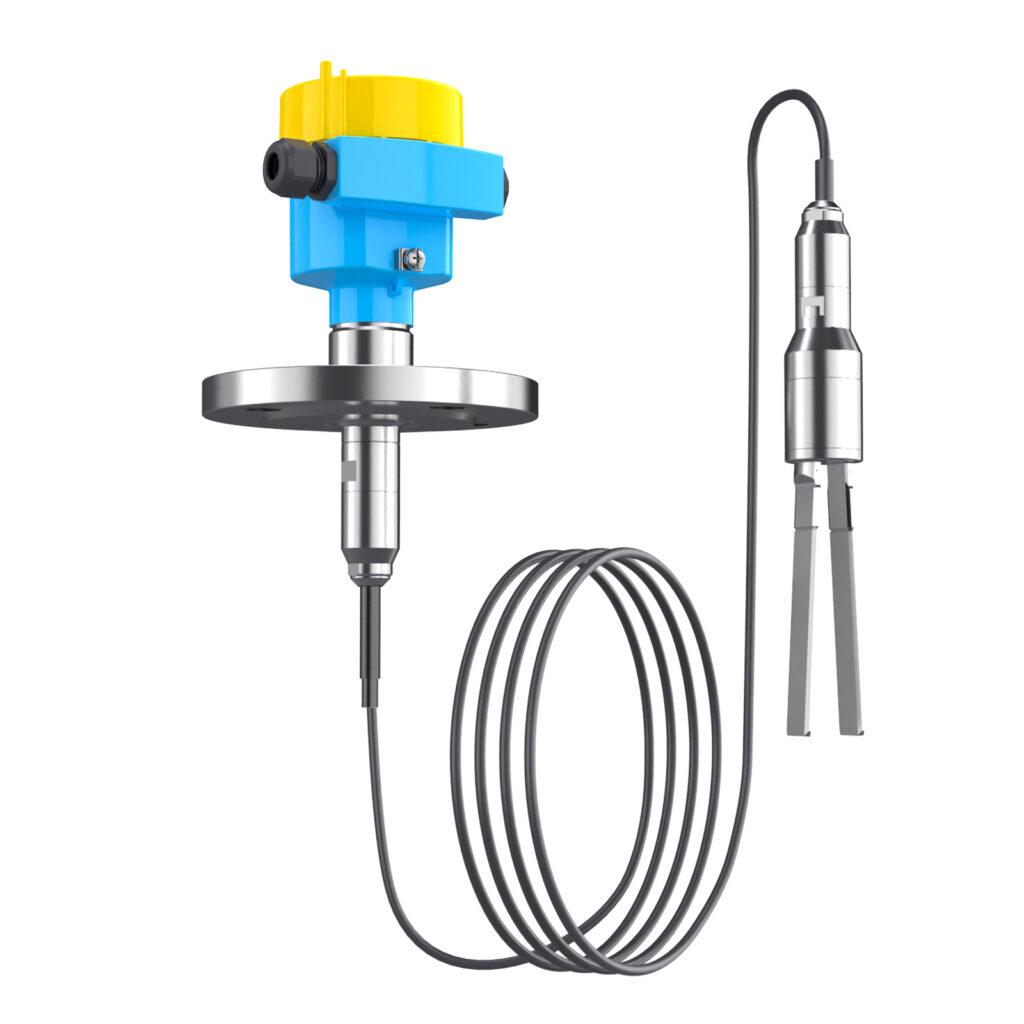
Tuning fork level switches use a pair of prongs that vibrate at a specific frequency. When material makes contact with the prongs, the frequency changes, signaling the presence of material at a certain level. Jiwei’s tuning fork level switches are well-suited for both liquids and solids and provide reliable level detection in diverse process conditions.
Key Advantages of Jiwei Tuning Fork Level Switches:
- High Sensitivity: Can detect small changes in material levels, offering great precision in measurement.
- Wide Application Range: Suitable for both liquid and solid materials, making it highly versatile.
- Robust Design: Withstands high-pressure environments and offers long-term reliability in demanding applications.
- Easy Installation: Simplifies installation and maintenance, ensuring minimal downtime in operations.
3. Radar Level Sensors
Radar level sensors are one of the most advanced technologies used for point level measurement. Jiwei’s radar sensors use microwave technology to provide non-contact level measurement. The radar waves are emitted towards the material surface and then reflected back to the sensor. The sensor calculates the distance based on the time it takes for the signal to return, ensuring accurate material level detection. Jiwei’s radar level sensors are perfect for measuring both solid and liquid materials in extreme environments.
Key Advantages of Jiwei Radar Level Sensors:
- Non-Contact Measurement: Suitable for high temperatures, high pressures, and hazardous materials as there’s no direct contact with the material.
- High Precision: Provides highly accurate level readings, even in challenging conditions.
- Resistance to Interference: Unaffected by temperature, pressure, or dust, which is a common problem in other types of sensors.
- Versatility: Can be used in a variety of industries such as oil and gas, chemicals, and food processing.
4. Capacitive Level Sensors
Capacitive level sensors detect changes in capacitance between two conductive elements when material makes contact with the sensor. Jiwei’s capacitive sensors are ideal for detecting solids or powders where high sensitivity is required, particularly in bulk solids like grains, powders, and other dry materials.
Key Advantages of Jiwei Capacitive Level Sensors:
- High Sensitivity: Accurate detection of even small amounts of material, ideal for fine powders or bulk solids.
- Versatile: Works well with non-metallic and metallic materials.
- Easy Calibration: Quick and simple to calibrate for different materials and applications.
- Compact Design: Small and easy to install in tight spaces.
Comparison of Jiwei Point Level Sensors
| Sensor Type | Best for | Advantages | Limitations |
|---|---|---|---|
| Vibrating Rod | Granular solids | High accuracy, minimal maintenance, durable | Not ideal for liquids |
| Tuning Fork | Liquids, solids | Highly sensitive, reliable, versatile | Sensitive to surface turbulence |
| Radar | Solids, liquids, slurries | Non-contact, highly accurate, resistant to interference | More expensive, requires calibration |
| Capacitive | Bulk solids, powders | High sensitivity, easy to calibrate, versatile | Not suitable for liquids |
Conclusion
Selecting the right point level sensor is crucial for ensuring accurate material level measurements and preventing potential operational failures. Jiwei’s product offerings, including vibrating rod, tuning fork, radar, and capacitive level sensors, cater to a wide range of industrial applications, from granular solids to liquids and slurries. Each of these sensors comes with its unique advantages, from high precision and durability to versatility and easy installation.
By understanding the specific needs of your application, you can choose the most appropriate sensor that will enhance the efficiency and reliability of your operations. Jiwei’s point level sensors guarantee long-term performance and help maintain seamless operation in various industries, ensuring both safety and cost-effectiveness in your processes.
